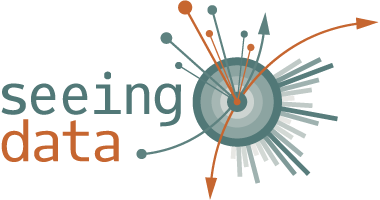PROJECT 1: Developing visualisation literacy
This project aims to develop understanding of the skills needed for visualisation literacy by evaluating approaches to developing such literacy and producing and disseminating visualisation literacy resources suitable for a range of audiences.
To date, very little effort has been made to understand the skills that are needed to engage with data visualisations – that is, visualisation literacy – and how these might be developed, despite the increasing need for such skills. The project will be situated within current debates about literacy in general (active, creative, socially-situated and including a critical dimension (Freire and Mecedo 1987)), digital literacy in particular (the capabilities required for living, learning and working in digital societies (JISC 2011)) and, more specifically, data literacy (which also includes a critical dimension (Gray and Davies 2015)). It will start with a review of the few visualisation literacy resources that are publically available (such as Seeing Data’s interactive resource (https://seeingdata.org/understanding-data-visualisations/) and of resources used in formal educational settings. This will be followed by the development and iterative testing and refining of visualisation literacy resources. The research will evaluate whether DIY visualisation is a route to visualisation literacy by experimenting with freely available visualisation tools such as Tableau Public and Density Design’s RAW, alongside the visualisation literacy resources produced on the project. The project will be framed by critical debates about the ideological work that visualisations do (Ambrosio 2015, Amoore 2009, Barnhurst 1994), the role that visualisations play in generating social, economic and political realities, and their uneven effects (Amoore and de Goede 2008, Hall and Mendel 2012). It will ask what kinds of literacies are needed in such unequal data societies.
The main objective is to advance social scientific and practical understanding of visualisation literacy. Subsidiary objectives are:
- To identify effective approaches to developing visualisation literacy for diverse users in unequal data societies;
- To understand what makes them effective;
- To develop freely available resources for developing visualisation literacy;
- To enhance user understanding of data communicated through visualisations;
- To make a contribution to the emergent field of critical data studies.
